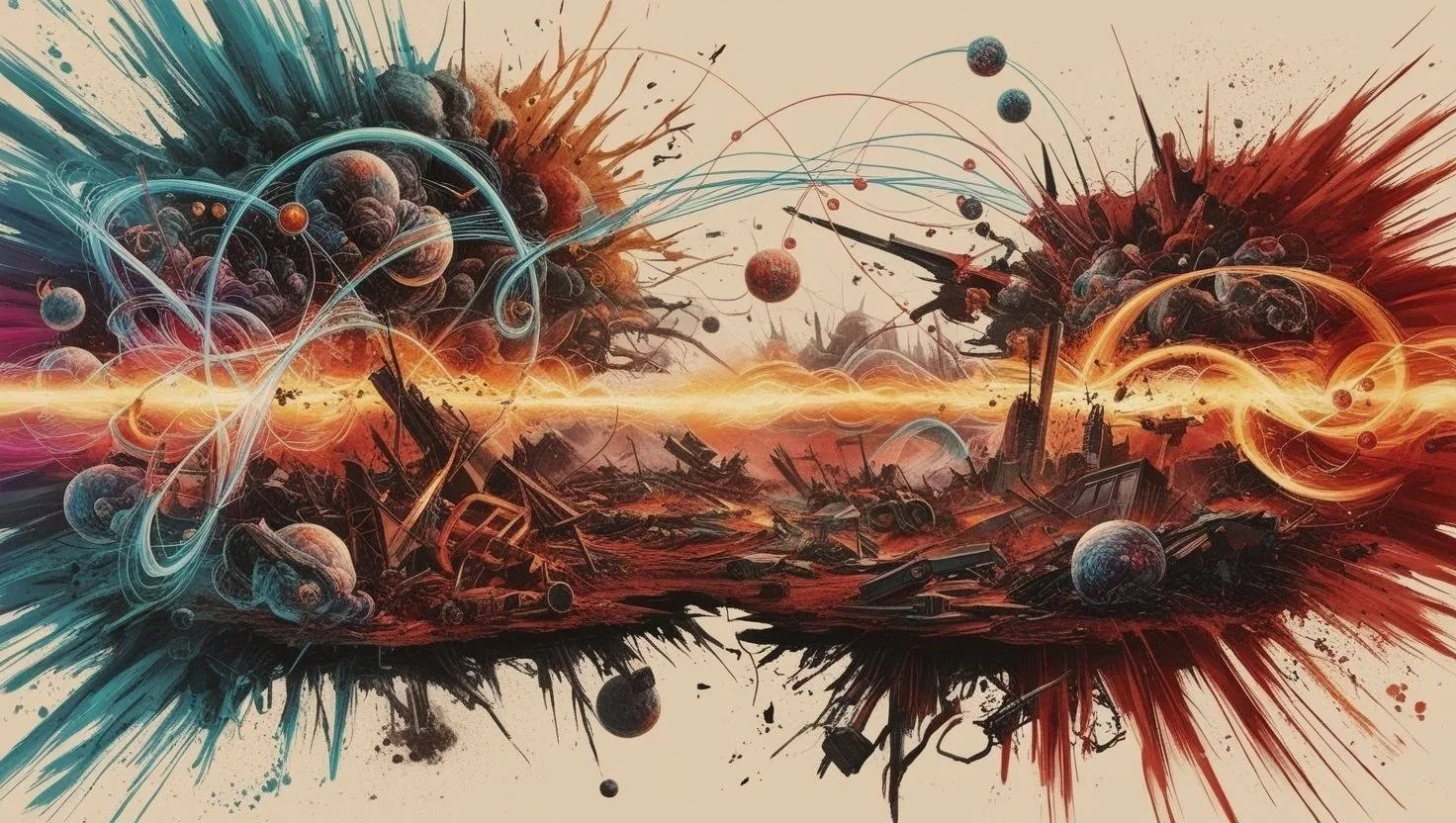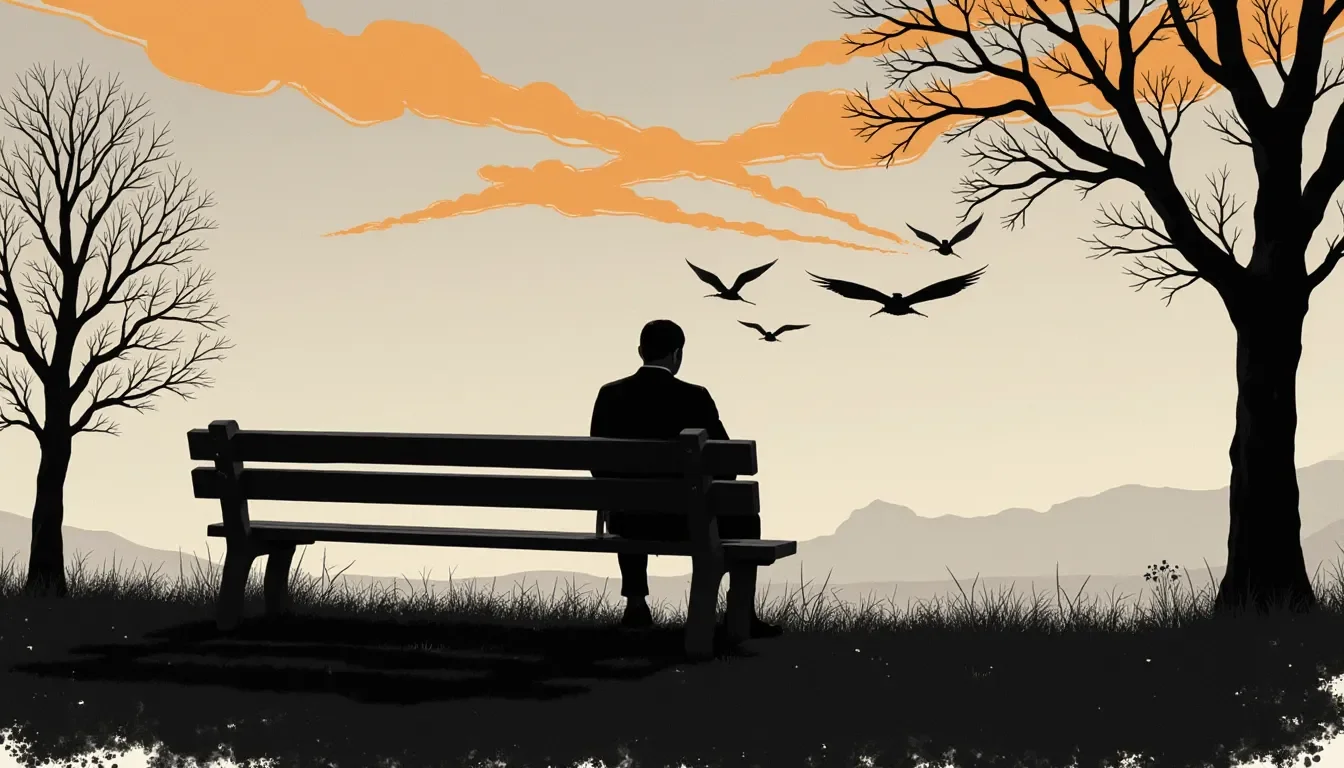
T H E W A R C H E S T
Between Blade and Book. Lessons from the Labyrinth
The Strategist's Scroll. Unpack the timeless nexus of warfare, philosophy, and power dynamics through the lens of Robert Greene 's enduring insights. This blog explores how strategic thinking, human nature, and intellectual wisdom converge on the battlefield of life, from ancient conflicts to modern influence.
The Grim Catalyst
This article explores the potent philosophical concept of "Memento Mori," where contemplating one's mortality serves as a powerful catalyst for gaining clarity, foresight, and purpose in life. Drawing on insights from Stoicism and the practices of influential figures like Steve Jobs and Jeff Bezos, it argues that confronting death…..
The Foresight of Hindsight
Karl Pillemer's extensive research with "happiness experts"—individuals in their seventies, eighties, and beyond—reveals profound insights into a well-lived life, emphasising the urgency of appreciating time, nurturing relationships, and finding meaning in work and daily joys. Critically, these elders warn against the…..
The Ghost of Christmas Yet to Come
Shane Parrish's "Clear Thinking" re-examines Dickens's Scrooge not as a quaint tale, but as a severe warning against a life driven solely by societal metrics like wealth and status, illustrating how such pursuits lead to isolation and regret. The article highlights the "hedonic treadmill" and misplaced ambition through…..
The Crucible of Choice
Mastering decision-making isn't about outcomes, which are often swayed by luck, but about rigorously dissecting the process of how decisions are made. Our innate self-serving bias blinds us to flawed thinking when outcomes are favourable, making genuine learning impossible. By adopting a "Process Principle" and…..
The Inevitability of the Crash
The article argues that a "margin of safety" is crucial for navigating an unpredictable world, acting as an essential buffer against unforeseen failures in all aspects of life, not just finance. It critiques the hubris of certainty, exemplified by Long-Term Capital Management's downfall, and advocates for prudent preparation…..
The Brutal Truth of Action
This article dissects the pervasive human tendency towards inaction, despite knowing the optimal path forward. It introduces a framework for decision-making based on Consequentiality and Reversibility, advocating for swift action on low-risk choices and meticulous deliberation for high-stakes ones. Ultimately…..
The Decisive Edge
In a world overwhelmed by information, effective decision-making hinges on establishing unwavering criteria to filter noise from signal. Identifying the single most important objective and ruthlessly prioritising against it, even through difficult processes like the "sticky note battle," is paramount. This clarity, combined…..
The Brutal Art of Seeing
This article argues that true clear thinking, a crucial "weapon" in navigating life's challenges, is not about optimistic fantasising but about confronting brutal facts and anticipating consequences. It advocates for "second-level thinking" and embracing complex, "Both-And" solutions over binary traps, urging readers to…..
The Crucial Art of Defining the Beast
Shane Parrish argues that genuine clarity in decision-making hinges on accurately defining the problem, not rushing to solutions. He advocates for understanding root causes, stripping away jargon, and separating problem definition from solution generation to overcome societal defaults that lead to perpetual symptom…..
The Price of Ignorance
The article argues that mistakes are an unavoidable part of life, often revealing flaws in our understanding rather than just bad luck. It critiques the human tendency towards self-serving bias and inertial thinking, which prevent us from acknowledging and learning from errors. The core message emphasises that…..
Willpower's Lie
This piece unpacks the critical concept of "safeguards" against our inherent biological and psychological vulnerabilities (like fatigue, hunger, stress, and emotional states) that impede good judgment. It argues that willpower is insufficient; instead, we need external and internal "architectural engineering" to protect ourselves from…..
The Unseen Enemy
This piece dissects the pervasive nature of human weaknesses and blind spots, differentiating between biological defaults and acquired bad habits. It proposes two strategies for mitigation: strengthening virtues and implementing safeguards. The core argument highlights our inherent difficulty in recognising…..
Echoes of Giants
Elevate your life by strategically choosing "exemplars"—individuals, living or dead, fictional or real—who embody the traits you wish to cultivate. Assemble these figures into a "Personal Board of Directors" to guide your decisions and raise your standards. Through consistent practice and imitation within "sandboxes"…..
Elevating Your Game
his piece argues that establishing and adhering to high standards, both personally and professionally, is crucial for achieving excellence. Drawing on Stoic philosophy, military strategy, and real-world examples (like Henry Kissinger and Bill Belichick), it highlights how our environment shapes us and how accepting….
The Four Pillars
This piece dives into the critical relationship between self-accountability, self-knowledge, self-control, and self-confidence, framing them not as abstract concepts but as essential tools for navigating the challenges of modern life. Drawing on real-world examples like leaving a secure job and resisting social pressure…..
Beyond Ego
His piece delves into authentic self-confidence, not the brittle facade of ego, but the strength to confront reality and admit imperfections. It highlights how past resilience, inner dialogue, and a focus on outcome over personal validation build genuine confidence that weathers challenges and allows us to adapt, learn, and ultimately, succeed.
Reclaiming the Helm
This blog post, aimed at men aged 40+, draws on insights from philosophy and military strategy to address feelings of stagnation and lack of direction in midlife. It argues that self-control, the ability to manage emotions rather than being controlled by them, is key to navigating this period. Using metaphors of a ship at sea and battlefield tactics, it emphasises that true success comes not from constant excitement but from disciplined persistence and the conscious choice to steer one’s own course despite emotional turbulence.
The Forty-Something Campaign
Feeling stuck at forty? This isn't the end game, but a critical phase for strategic repositioning. Learn to conduct a brutal self-assessment, identifying your strengths and vulnerabilities, just like a military strategist. Honest self-knowledge, including admitting what you don't know, is the key to overcoming inertia and launching a renewed offensive in life. Stop operating on default and take command of your next chapter.
Stop Blaming the Bus
This piece tackles the common experience of facing stagnation in middle age (40+), arguing that a key to overcoming it lies in embracing radical self-accountability. It draws on principles of personal responsibility, highlighting how blaming external factors and succumbing to a victim mentality prevents progress. The core message is that while you can't control every circumstance, you always control your response, and focusing on this empowers you to find solutions and move forward.
The Default to Clarity
The passage argues that stagnation, particularly in men over 40, isn't always a failure of willpower but often a consequence of deeply ingrained default behaviours or "algorithms" programmed by evolution, culture, and environment. It highlights that spending time with certain communities influences these defaults, and breaking negative habits or forming positive ones is significantly easier when the surrounding environment encourages the desired behaviour. The core strategy for change, therefore, is not relentless willpower but the deliberate creation of an environment where positive actions become automatic defaults.



















